Q&A: Sustainability Leaders
Following on from our previous article, our next Sustainability Leader Q&A is with Alun Watkins, Executive Director at Programme for Endorsement of Forest Certification. Alun was invited to speak at the BCFA Sustainability seminar, providing the BCFA members with insight into the PEFC and how the furniture industry can change its habits to become more sustainable.
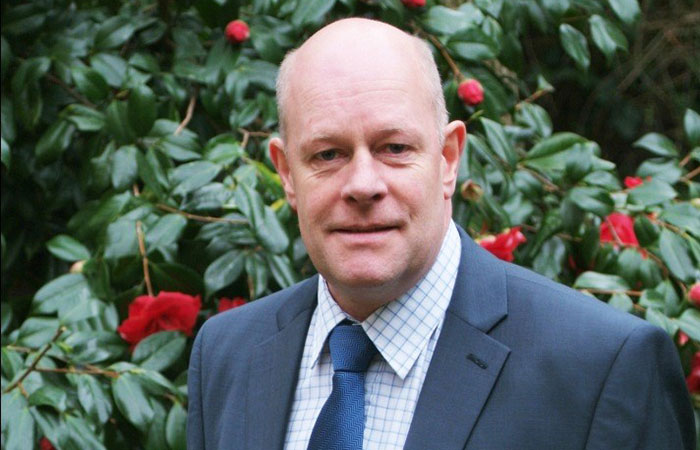
Please could you tell us about yourself and your role with PEFC?
As Executive Director, I have been in charge at PEFC UK (Programme for Endorsement of Forest Certification) – a member of the world’s largest forest certification system – since 2010. I hopefully brought a wealth of expertise to the organisation from twenty-five years’ experience in the timber and furniture industries, latterly specialising in environmental issues. Before joining PEFC UK, I worked for The Furniture Industry Research Association (FIRA) as their Consultancy manager and an Environmental consultant, providing advice and guidance to the furniture industry on all aspects of environmental compliance. I was also instrumental in the development and promotion of the Furniture Industry Sustainability Programme (FISP) and the Furniture Industry Environment Committee. I have had the privilege of being involved with FISP once again and have acted as Chair since 2017.
Why is sustainable forest management important?
Sustainable Forest Management matters because forests matter. They provide us with food, energy, timber and a variety of forest products. They promote biodiversity by providing habitats, food and shelter, play an integral role in the water and carbon cycles and have a fundamental role in climate regulation. More than one in five people worldwide – an estimated two billion people – depend on forests and the services they provide for their livelihoods. If forests are to continue to deliver the full range of benefits that people and nature rely on, they need to be conserved and managed sustainably.
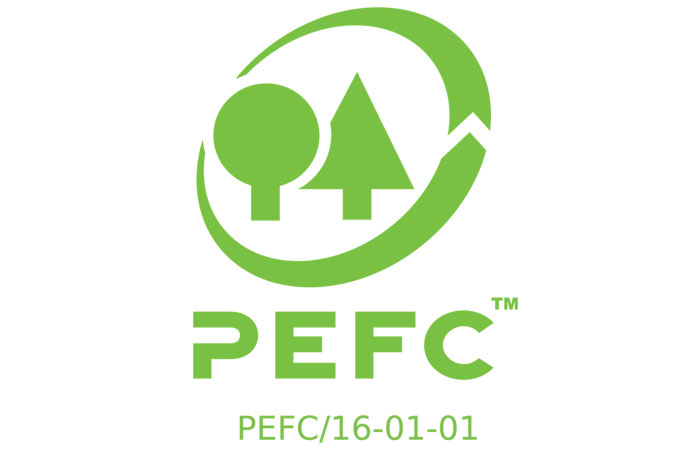
Why Does Certification Matter?
While forest management is a long-term process, forest certification enables forest managers to demonstrate that the practices they implement in the forest today are sustainable and that their forests meet both our current needs and those of future generations. Additionally, certification empowers responsible businesses and consumers alike to choose responsibly-sourced, certified products thereby rewarding those who manage their forests well. The use of the PEFC label on product helps consumers easily identify such products.
What are the benefits to people and planet of SFM?
PEFC’s demanding Sustainable Forest Management standards ensure that forests are managed in a sustainable way, creating outcomes that are socially just, ecologically sound and economically viable – the core pillars of sustainability. These include the maintenance and improvement of biodiversity, the protection of ecologically important forest areas, the prevention of deforestation and promotion of local employment. The PEFC endorsed forests certification schemes are assessed against more than 200 criteria, which include preserving the natural habitats of plants and animals while respecting the rights of forestry workers and local communities. Growing and harvesting timber sustainably provides valuable income and work opportunities whilst conserving the forest for future generations. Certification provides real incentives to manage the forest responsibly and to ensure the land stays forested and not converted for others uses such as agriculture.
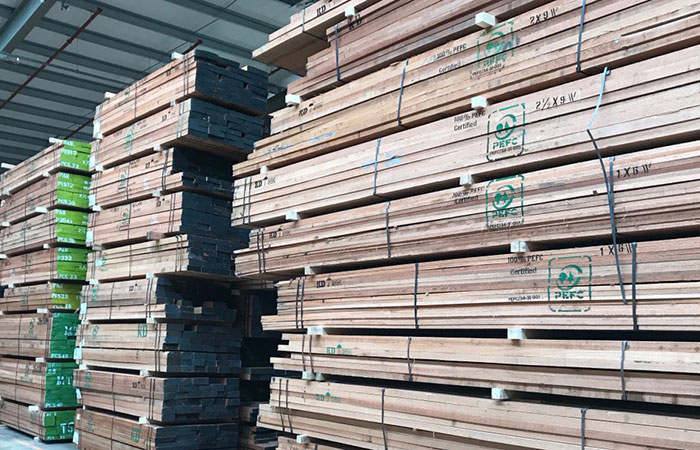
Can you introduce PEFC?
PEFC, the Programme for Endorsement of Forest Certification is an international non-profit, non-governmental organisation dedicated to promoting Sustainable Forest Management through independent third-party certification. It was founded in 1999 by small and family forest owners to demonstrate excellence in forest management and over the past 20 years has grown to become the world’s leading forest certification system and a globally recognised brand. PEFC works by endorsing national forest certification systems, developed collaboratively by all interested stakeholders, and currently has recognised certification systems in 48 countries.
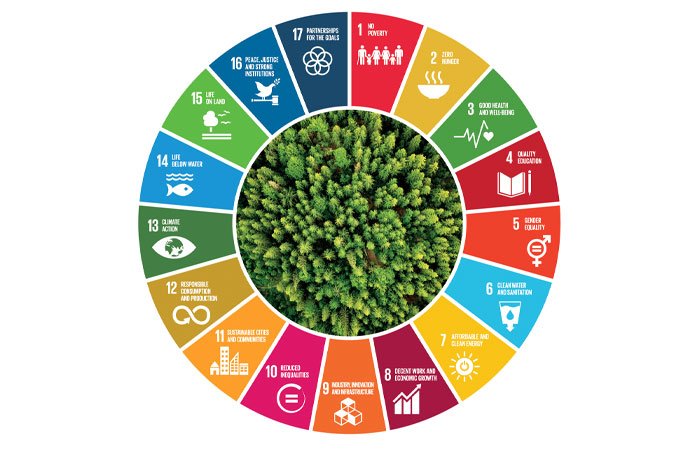
What is the difference between PEFC and FSC?
Worldwide, there are two internationally recognised systems for the certification of sustainable forestry management and its supply chain – the Programme for the Endorsement of Forest Certification (PEFC) and the Forest Stewardship Council (FSC). There are far more similarities than differences between the two, with both PEFC and FSC helping to drive sustainable forest management practices around the world. The differences are largely concerned with origins – FSC was founded by conservation organisation such as Greenpeace, WWF and Friends of the Earth together with some leading UK retailers, while PEFC was founded by European forest owners and organisations in 1999, prior to going global in 2005. The FSC is very much a top down scheme, while PEFC has a bottom up approach. The way the schemes manage their accreditation of the certification bodies they use, is also different. PEFC follows the Internationally recognised ISO and IAF system while FSC has established their own accreditation body, called ASI. PEFC publishes a handy brochure which can be downloaded from the PEFC website which outlines the differences in a bit more detail: https://www.pefc.co.uk/publications/pefc-promoting-sustainable-forest-management-around-the-world
Why is Chain of Custody important to manufacturers?
Chain of Custody certification is the process which tracks certified material from the forest to the end user enabling companies to make accurate claims on the content of certified material. It proves that each step of the supply chain, from the forest to the end user, has been carefully monitored through independent auditing and provides a means of tracking certified material. This unbroken link provides transparent proof that a wood-based product originated from a responsibly managed and certified forests. More and more procurement policies – both public and private sector – are demanding that their wood-based products are responsibly sourced and Chain of Custody is a good way to provide such assurances.
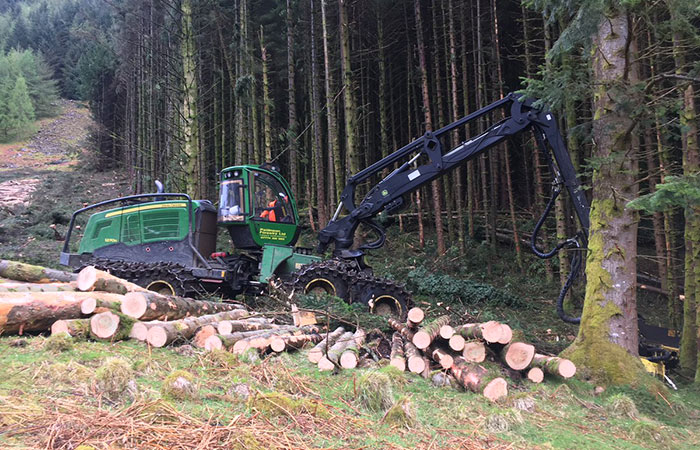
What is your focus for 2020 and the years ahead?
Contributing to the Sustainable Development Goals
Looking to the future, PEFC believes that sustainably managed forests will play a key role on the delivery of the United Nation’s Sustainable Development Goals (SDGs). These are a blueprint to achieve a better and more sustainable future for all. We are committed to contributing to the delivery of the SDGs as we help unlock the full potential of forests for a more sustainable world.
Forestry Developments
Undoubtedly, the forthcoming years will also see us having to adapt to new approaches to woodland management to address threats of drought, increased risk of damage from pests, pathogens, wind and fire. New species will need to be planted which can thrive in a warming climate. We are also likely to witness greater afforestation to offset the effects of climate change.
There is also likely to be an increased demand for forest products and fibre, for example in textiles. Almost 65% of current global fabric consumption consists of synthetic fibres derived from fossil fuels, whilst the majority of the remainder is made up of cotton, a water and pesticide-intensive crop. Renewable and responsibly sourced wood fibres are part of the solution to make the textile industry more sustainable. We will therefore need to work closely with these new sectors to ensure that they understand forest management and chain of custody.
We will also be ensuring that more forest areas come under sustainable forest management and certification. Growing the certified area will allow industry to meet these increased demands for certified wood-based products.

Thank you so much to Alun Watkins for sharing his in-depth knowledge about sustainable forest management & sustainability. To read more of the Sustainability Leaders Q&A, click here. For all other sustainability related articles, click here.





